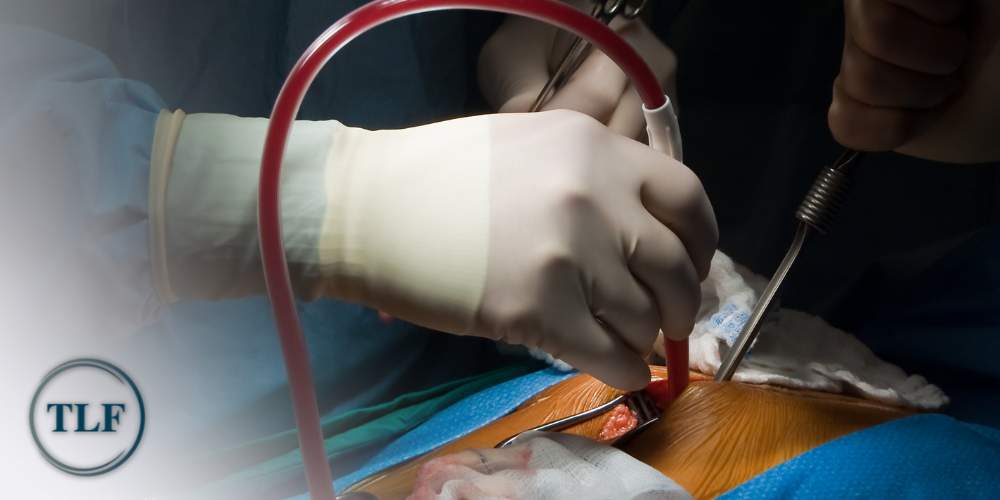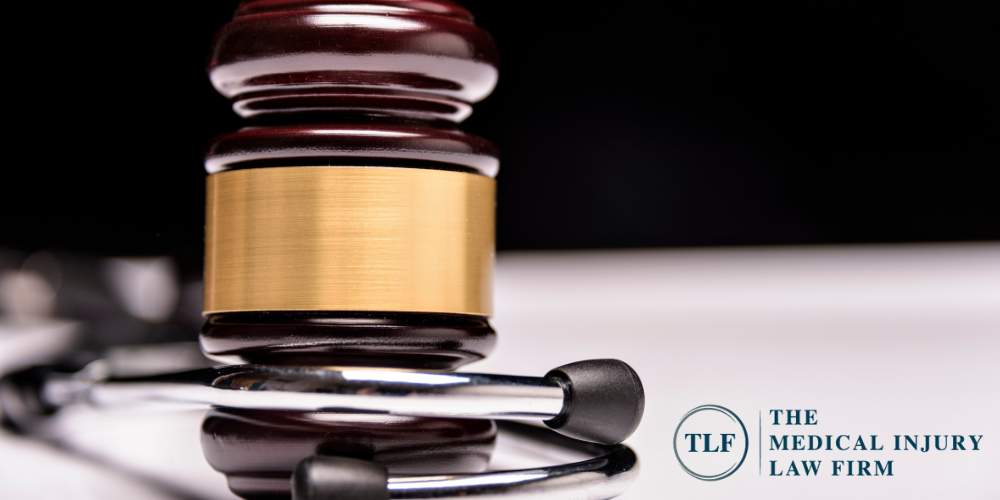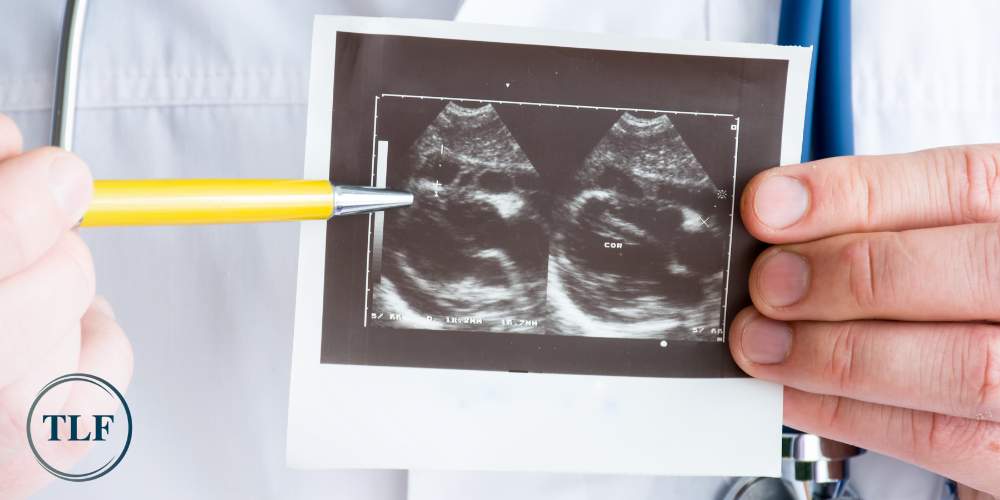Fluid around the heart, a condition medically referred to as pericardial effusion, can pose significant health risks for those affected. At TLF: The Medical Injury Law Firm, we recognize how distressing a diagnosis of pericardial effusion can be, particularly when it might stem from medical malpractice. That’s why we’re here to help victims understand their rights and the legal implications surrounding pericardial effusion malpractice.
If you believe your pericardial effusion was caused by medical negligence, contact TLF by calling (800) 698-4054 to schedule a free consultation with one of our experienced medical malpractice attorneys right away.
Below, our Ohio and Northern Kentucky medical malpractice attorneys shed light on the common causes of pericardial effusion, exploring both the medical and legal perspectives surrounding the issue.
What is Fluid Around the Heart Called?
Fluid accumulation around the heart is clinically termed “pericardial effusion.” This condition occurs when excess fluid builds up between the pericardium, the fibrous sac surrounding the heart, and the heart itself. Normally, a small amount of fluid resides in this space to facilitate smooth heart movements within the chest.
However, when the balance is disrupted and fluid overaccumulates, it can lead to various symptoms and complications, ranging from mild discomfort to life-threatening scenarios such as cardiac tamponade, where the pressure from the fluid severely affects the heart’s ability to pump blood.
Understanding Pericardial Effusion
Pericardial effusion is a medical condition characterized by the accumulation of excess fluid within the pericardial cavity, the slender space between the heart’s outer layer and the surrounding pericardial sac. This buildup can vary from minimal and asymptomatic to substantial, exerting pressure on the heart.
When the heart is encased in excessive fluid, it can hinder its normal expansion and contraction, essential processes for maintaining optimal blood circulation throughout the body. This pressure can lead to compromised heart health, displaying symptoms such as shortness of breath, chest pain, and, in severe cases, cardiac tamponade.

Common Causes of Excess Fluid Around the Heart
Excess fluid around the heart can stem from a variety of causes. From infections and inflammatory diseases affecting the pericardium to the aftermath of heart surgery, trauma, or underlying medical conditions such as cancer, kidney failure, or autoimmune disorders, the reasons behind this excessive fluid buildup are as numerous as they are complex. Also, certain medications and radiation therapy for cancer can also predispose individuals to pericardial effusion.
Infections
Viral infections are among the most prevalent infectious agents leading to pericarditis, which can result in fluid accumulation around the heart. Bacterial infections, particularly tuberculosis in certain regions, also pose a serious risk.
These infectious agents prompt the body’s immune response to combat the invasion, leading to increased fluid production as part of the inflammatory process. This inflammation can escalate without timely and effective treatment, causing significant fluid buildup that compromises cardiac function.
Inflammatory Diseases
Inflammatory diseases can also contribute significantly to the development of pericardial effusion. Conditions such as lupus, rheumatoid arthritis, and scleroderma, known for their widespread inflammatory impact, can specifically target the heart’s pericardium, leading to effusion.
These autoimmune disorders trigger the body’s immune system to attack its own tissues, including the pericardium, causing inflammation and excessive fluid buildup around the heart, complicating their overall health.
Trauma
Chest trauma, whether from a direct blow, a penetrating wound, or a surgical intervention, can lead to pericardial effusion as a direct consequence of injury to the heart or its surrounding structures. Such physical damage can cause bleeding into the pericardial space or provoke an inflammatory response, which can result in fluid accumulation around the heart.
The body’s response to trauma involves deploying fluids to the affected area, which, in the case of the pericardium, can lead to excessive pericardial fluid buildup. This condition requires immediate medical attention to prevent complications like cardiac tamponade, where the pressure from the accumulated fluid significantly restricts heart function.

Cancer
Cancer and its treatments can be key contributors to the development of pericardial effusion, particularly when tumors directly involve the heart or pericardium or when cancer metastasizes from other parts of the body. Lung cancer, breast cancer, and lymphomas are among the types most likely to lead to fluid accumulation around the heart, either through the cancer itself or as a complication of treatments like radiation or chemotherapy.
The presence of cancer can trigger inflammation or cause a direct invasion of the pericardial space, leading to an accumulation of fluid. Additionally, cancer treatments, while targeting malignant cells, can inadvertently affect the pericardium, further increasing the risk of effusion.
Heart Attack
A heart attack, or myocardial infarction, can indirectly lead to pericardial effusion as a complication from the injury to the heart muscle. During a heart attack, the loss of blood supply results in damage to the heart’s tissues, which may provoke an inflammatory response known as pericarditis. This inflammation can cause fluid to accumulate in the pericardial space as the body attempts to heal the damaged tissue.
Other Medical Conditions
Other medical conditions, such as kidney failure and hypothyroidism, can also lead to pericardial effusion. Kidney failure leads to an imbalance in the body’s fluid management systems. This imbalance can cause excessive fluid to build up in various body parts, including the pericardial cavity, due to the retention of excess water and waste products that the kidneys can no longer efficiently remove.
Hypothyroidism, on the other hand, can lead to pericardial effusion through a different mechanism. The reduced levels of thyroid hormones can cause widespread effects on the body’s organs and tissues, including the accumulation of mucopolysaccharides in the pericardium, which attracts water and leads to fluid buildup.
Other conditions, such as myxedema and advanced liver disease, similarly affect the body’s fluid balance or provoke inflammatory responses that can culminate in pericardial effusion.

Symptoms of Fluid Around Heart
Pericardial effusion symptoms vary widely depending on the amount of fluid and how quickly it builds up. In some cases, individuals may experience no symptoms, especially with slow accumulation. However, when symptoms do manifest, they can include:
- Chest pain or discomfort
- Shortness of breath or difficulty breathing
- Cough
- Fatigue
- Swelling in the abdomen or legs
- Palpitations
Severe cases of pericardial effusion, especially when leading to cardiac tamponade, can present more dramatic symptoms, including severe difficulty breathing, shock, and loss of consciousness.
How To Diagnose Pericardial Effusion
Diagnosing pericardial effusion involves clinical assessment and advanced imaging techniques to identify and evaluate excess fluid around the heart. A healthcare professional may detect pericardial effusion during a physical examination, such as muffled heart sounds and low blood pressure.
To confirm the diagnosis of the pericardial effusion, echocardiography, a non-invasive ultrasound test, provides detailed images of the heart’s structure and function. Other diagnostic tools may include electrocardiography (ECG), chest X-ray, and in some cases, computed tomography (CT) or magnetic resonance imaging (MRI) for more detailed visualization.
If the cause of the pericardial effusion is unclear, pericardiocentesis, a procedure to remove and analyze the fluid, may be performed.
Can Fluid Around the Heart Kill You?
Pericardial effusion can become life-threatening if not properly managed. In severe cases, it can cause cardiac tamponade, a critical condition where the pressure from the fluid restricts the heart’s ability to pump blood effectively. This medical emergency can result in shock and, if left untreated, death. The risk of pericardial effusion turning fatal depends on the speed of fluid accumulation, the underlying cause, and how quickly it is identified and treated.

How Do You Get Rid of Fluid Around the Heart?
To manage fluid around the heart, medical professionals employ a strategy that may include medications to reduce inflammation or treat infection and, in more severe cases, procedures to remove the fluid.
For constant effusions, a surgical procedure known as a pericardial window may be performed, creating a small opening in the pericardium to allow fluid to drain continuously into the abdominal cavity, preventing reaccumulation.
The choice of treatment depends on the effusion’s cause and severity, focusing on both alleviating symptoms and addressing the underlying condition to prevent future occurrences.
Treatment for Fluid Around Heart
The treatment options for pericardial effusions depend on its severity and cause. Pericardial effusion treatment options include:
- Mild Effusion: Treatment of the underlying condition with medications like anti-inflammatories or antibiotics.
- Medication: Nonsteroidal anti-inflammatory drugs (NSAIDs) or corticosteroids to reduce inflammation and fluid production.
- Pericardiocentesis: Draining fluid through a needle insertion to relieve heart pressure.
- Pericardial Window: A surgical procedure to create an opening in the pericardium for continuous fluid drainage into the abdominal cavity, preventing accumulation.
- Surgical Options: More extensive surgeries may be required for severe or recurrent cases.
- Addressing the Cause: This treatment option is essential for preventing recurrence by treating any underlying conditions like kidney failure, hypothyroidism, or cancer.
When Pericardial Effusion Becomes a Legal Matter
When pericardial effusion results from misdiagnosis, delayed diagnosis, or errors in treatment, it can become a legal matter. These scenarios occur when healthcare professionals fail to recognize the symptoms of pericardial effusion, do not order the appropriate diagnostic tests, or incorrectly manage the condition once diagnosed.

How the Medical Malpractice Attorneys at TLF Can Help
The medical malpractice attorneys at TLF are dedicated to supporting individuals and families affected by healthcare oversights related to pericardial effusion. If you believe you’ve been a victim of medical malpractice concerning pericardial effusion, contact TLF: The Medical Injury Law Firm at (800) 698-4054 or reach out online to schedule a meeting with an experienced Ohio and Northern Kentucky medical malpractice attorney today.

